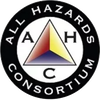Short-Mid-Long-Term Goals
The Working Group has established an ongoing list of short-term, medium-term and long-term objectives to support its mission for all sectors involved, not just the electric sector who initially took the leading role in its formation. This list is reviewed and updated periodically as situations and best practices emerge from all sectors including energy, transportation, telecommunications, supply chain, retail, finance, etc:
Short-term = 6-12 months
Medium-term = 12-18 months
Long-term = 18+ months
Toll Stations/Roads
Short-Term
Fuel, trip, and weigh station Permits
Short-term
Weigh stations
Short-term
Secure Data & Information Sharing
Short-term
The Working Group has established an ongoing list of short-term, medium-term and long-term objectives to support its mission for all sectors involved, not just the electric sector who initially took the leading role in its formation. This list is reviewed and updated periodically as situations and best practices emerge from all sectors including energy, transportation, telecommunications, supply chain, retail, finance, etc:
Short-term = 6-12 months
Medium-term = 12-18 months
Long-term = 18+ months
Toll Stations/Roads
Short-Term
- Develop strategy to have utility companies open an online account with E-ZPass and other ETCS systems around the country.
- Begin to add vehicle/license plates to these online accounts for use in an emergency that requires movement into those regions.
- Develop a pilot project to test E-ZPass system using companies outside of the normal E-ZPass geographic area of coverage. Companies will open EZ-Pass account, load truck information into online EZ-Pass account and test going through EZ-Pass toll
- Work with toll collection agencies to create a special process for out-of-state vehicles/plates for those rare occasions when they must move into their states or regions.
- Work with the I95 Corridor Coalition to migrate toll collection systems to video-based system instead of transponder-based systems
Fuel, trip, and weigh station Permits
Short-term
- Explore having utility companies purchase permits regional or within RMAG areas in advance of storm season to use on an on-demand basis.
- Explore expansion of North Carolina’s has NC-Pass (www.ncpass.net) for weigh stations with the region and other state systems
- Additionally, have utilities purchase IFTA stickers for intra-state trucks regionally or within RMAG regions (that are legal to travel inter-state) for fuel, weight and trip permits.
- Convert all qualified fleet vehicles to inter-state registered fleet vehicles
- As you design and/or replace fleet vehicles/fleets, design new vehicles/fleets for interstate travel and register them as interstate.
Weigh stations
Short-term
- Develop the Fleet Movement Coordination call with states as part of the Fleet Working Group.
- Develop a process for the local requesting utility to pass fleet movement information specific to their state onto the regional RMAG and regional fleet movement coordination call helpdesk
- Understand administrative impact of convert fleets from intra-state licenses to inter-state licenses
- Understanding convoy size impacts at weigh stations in each state
- Explore the option – weigh the trucks once and pass the way station reports onto multiple states and weigh stations by way of a PIV-I data sharing mechanism
- Create a process/policy to exempt service utility vehicles from weigh stations
- Utilize the IFTA sticker concept by coordinating with all states to accept this sticker and/or an equivalent placard on the vehicle
Secure Data & Information Sharing
Short-term
- Continue to develop the Regional Fleet Movement Coordination process and protocols with states
- Develop a secure, operational process and protocol for the local requesting utilities to share their fleet movement information specific to their state with the Regional Mutual Aid Groups (RMAGs) and the Regional Fleet Movement Coordination participants for a given event
- Explore requirements and/or develop process and protocols to securely share weigh station information between multiple states and their weigh stations so that trucks get weighed once and do not have to stop and every weight station along their multi-state fleet movement routes.
- Explore requirements and/or create a virtual help/coordination desk to support and coordinate the states and private sector during multi-state fleet movements

